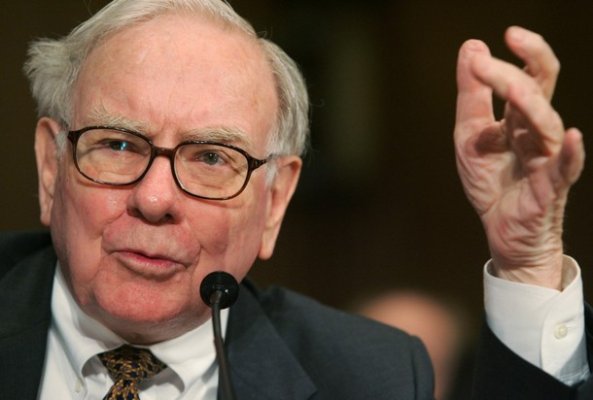Midpack
Give me a museum and I'll fill it. (Picasso) Give me a forum ...
I just watched, but I am sure it's on at different times on various PBS stations. Warren is in the news today for his NYT op-ed piece http://www.nytimes.com/2011/08/15/opinion/stop-coddling-the-super-rich.html?_r=2&ref=warrenebuffett, but CNN and other networks are focused on Warren's statement that the rich should be taxed more without also acknowledging that he realizes that won't be enough, that we must deal with spending and revenues (aside from the super-rich). He is only volunteering as a sincere means of starting the process.
I thought it was interesting that he suggested tax/revenues of 18½-19% and spending of about 21%. I think we're at about 15% and 24%+ respectively right now. He said we can stand a deficit of 3% of GDP because growth will resume (and already has in his businesses not associated with home building), but not 10% like we are now. Interesting insight IMO...
If you're down on America Inc lately (political gridlock, stock market volatility, etc.), I think you'll feel a little better having watched his interview today with Charlie Rose. FWIW...
I thought it was interesting that he suggested tax/revenues of 18½-19% and spending of about 21%. I think we're at about 15% and 24%+ respectively right now. He said we can stand a deficit of 3% of GDP because growth will resume (and already has in his businesses not associated with home building), but not 10% like we are now. Interesting insight IMO...
If you're down on America Inc lately (political gridlock, stock market volatility, etc.), I think you'll feel a little better having watched his interview today with Charlie Rose. FWIW...
Stop Coddling the Super-Rich
By WARREN E. BUFFETT
Published: August 14, 2011
Last year my federal tax bill — the income tax I paid, as well as payroll taxes paid by me and on my behalf — was $6,938,744. That sounds like a lot of money. But what I paid was only 17.4 percent of my taxable income — and that’s actually a lower percentage than was paid by any of the other 20 people in our office. Their tax burdens ranged from 33 percent to 41 percent and averaged 36 percent.
Twelve members of Congress will soon take on the crucial job of rearranging our country’s finances. They’ve been instructed to devise a plan that reduces the 10-year deficit by at least $1.5 trillion. It’s vital, however, that they achieve far more than that. Americans are rapidly losing faith in the ability of Congress to deal with our country’s fiscal problems. Only action that is immediate, real and very substantial will prevent that doubt from morphing into hopelessness. That feeling can create its own reality.
Job one for the 12 is to pare down some future promises that even a rich America can’t fulfill. Big money must be saved here. The 12 should then turn to the issue of revenues. I would leave rates for 99.7 percent of taxpayers unchanged and continue the current 2-percentage-point reduction in the employee contribution to the payroll tax. This cut helps the poor and the middle class, who need every break they can get.
Last edited:


